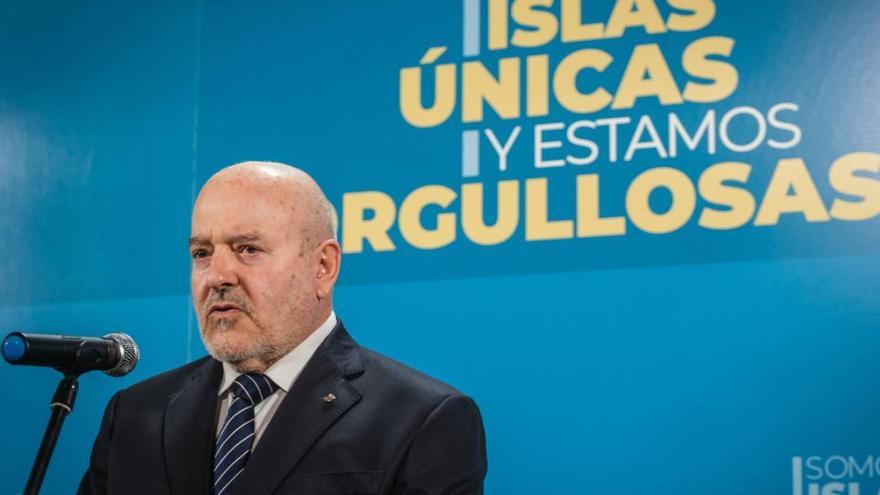
The Criminal Chamber of the Supreme Court has ratified the conviction of 23 months in prison imposed on businessman Miguel Concepción Caceres by continued crime of aggravated fraud in the official bonuses granted by the Administration to residents of the Canary Islands for flightsas well as that of 8 months in prison corresponding to two daughters of the same charged as accomplices to the crime.
The ruling of the Audiencia de Tenerife now ratified further establishes that the three defendants must indemnify the General State Administration – Ministry of Public Works – in the amount of 3,987,769.07 eurosfor which Miguel Concepción will be responsible for 50 percent and his two daughters for 25 percent each, jointly and severally responsible for their share and subsidiary to that of the author and his for theirs.
The proven facts indicate, among other things, that “Between November 2007 and April 2011, the amount paid as bonuses by the company ISLAS AIRWAYS, SA associated with inter-island flights in the Autonomous Community of the Canary Islands amounted to 47,260,839.58 euros. (…) Miguel Concepción Cáceres, in his capacity as president of the entity “ISLAS AIRWAYS, SA”with the intention of receiving from the Ministry of Development amounts greater than those that would have corresponded by virtue of the mentioned Royal Decree and therefore obtaining an undue patrimonial benefit, devised and adopted the decisions that are detailed below, in which plan they collaborated following its instructions , Eloísa Concepción Rodríguez and Verónica Concepción Rodríguez, in their capacity as members of the board of directors, giving the guidelines for its materialization”.
The story adds that the defendants, during the years 2008 to 2011, “They sent flight files and certifications that appeared to be correct and had documentary support, which allowed them to pass routine controls, when in reality they lacked support or did not respond to reality, thus obtaining bonuses that were higher than those actually due. in the terms required by the Royal Decree and the Subsidies Law, for an amount of 8,399,180.32 euros”.
The high court dismissed the appeal of the three convicted persons and considered correct the classification as a crime of fraud, aggravated by the amountcommitted by those who controlled a travel agency, simulating Canarian inter-island trips, and obtaining the official bonuses granted by the Administration to the residents of the islands, to help them in their air travel, all of which being false and apparently and formally documented to overcome the routine controls of the Ministry of Public Works, obtaining a large sum for the damage caused to the Administration.
The Supreme Court, in a judgment for which the Judge Julián Sánchez-Melgar, dismisses the request that the mitigating of undue delay appreciated in the case was considered highly qualified. The high court recalls that, although it was also requested by the Public Prosecutor in the instance, the Provincial Court opted for the position held by the private prosecution (Ministry of Public Works) and the public prosecution (Binter, airlines). It considers that the total duration of the process, of 8 years, and the fact that there have been no delays beyond some of 9 months, determined by the preparation of reports and by the qualification of the facts, understandable due to the complexity of the cause, do not allow classify the stoppage as extraordinary.
This communication cannot be considered as the official publication of a public document. The communication of the personal data contained in the attached judicial resolution, not previously dissociated, is carried out in compliance with the institutional function that article 54.3 of Regulation 1/2000 of July 26, of the governing bodies of the courts, attributed to this Communication Office, for the exclusive purposes of its eventual treatment for journalistic purposes in the terms provided for in article 85 of Regulation (EU) 2016/679 of the European Parliament and of the Council, of April 27, 2016, regarding the protection of natural persons with regard to the processing of personal data.
In any case, the provisions of the personal data protection regulations will apply to the treatment that the recipients of this information carry out of the personal data contained in the attached judicial decision, which may not be transferred or communicated for contrary purposes. to the laws.
















